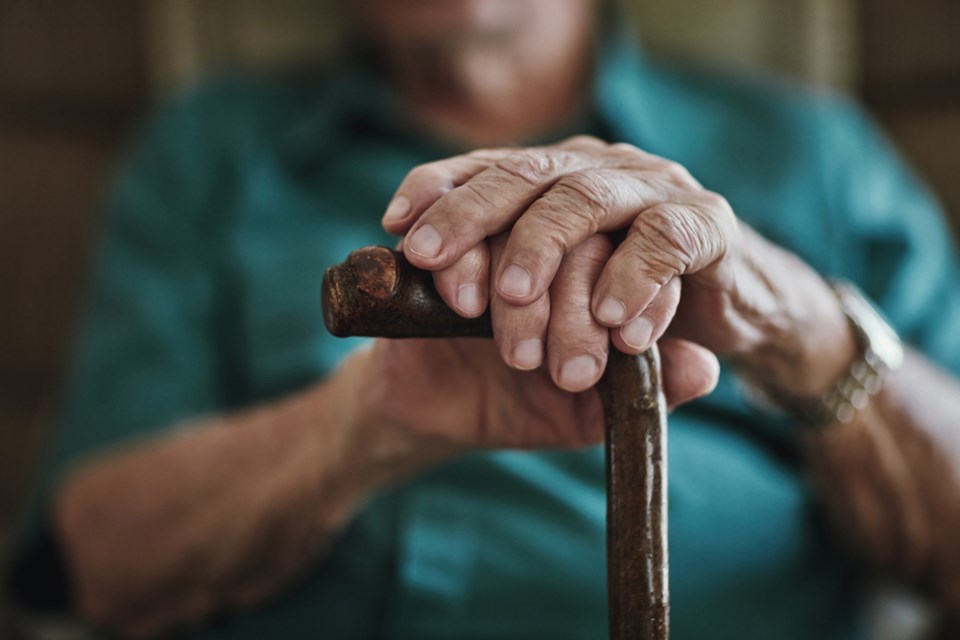Have you ever been afraid of falling, and I do not mean in love?
I mean the fear of physical falls which might result in you becoming inactive and isolated?
Falling is a serious issue for seniors because, as leading experts have said, falls are the leading cause of injury for older adults. According to HealthLink BC, “one in three British Columbians over the age of 65 will fall once every year, and falls are the main reason why older adults lose their independence.” Falls are also the principal reason for injury-related hospitalizations among Canadian older adults.
Because of the seriousness of falling for older adults, it is important that we raise the profile of falls prevention. That is one of the reasons that the Canadian government has designated November as fall prevention month.
Falling can be a consequence of a number of health-related factors for older people. For instance, older people may develop poor balance and decreased muscle and bone strength, and they are susceptible to reduced vision or hearing. Seniors may develop symptoms of dizziness and weakness, perhaps related to their medications. Also, older people may not be taking the steps to keep their homes safe, to eat well and stay fit.
Most importantly, the fear of falling can have a profound effect on a person as they may curtail their activities which might lead to other health issues such as depression, anxiety, isolation, and physical decline.
But the good news is that falls are preventable. The McMaster Optimal Aging Portal, a comprehensive web resource from McMaster University, notes three strategies you can adopt that will go a long way to preventing falls. These include “adjusting your home environment, engaging in exercises that promote strength and balance, and being mindful of your foot health.”
The Optimal Age Portal notes that research has shown that modifying your home environment has resulted in fewer falls for older people. There are steps you can take in adjusting your home environment that may help. You could remove trip hazards inside and out and make sure you have good handrails and lighting on your staircases. You could also add non-slip treads for bare wooden steps. In your bathroom, install shower and tub grab bars, and place non-slip mats on the shower floor and bathtub.
Make sure to secure loose rugs with double-faced tape, tacks, or slip-resistant backing. Lastly, clear away clutter, which can include loose wires and cords, furniture, and junk.
In preparing for the inclement weather ahead of us this winter, try these steps to prevent falls. Make sure that you use footwear with good traction, keep your eyes trained on what is before you and, if necessary, use a walking stick for balance. Be careful getting out of your car, avoid taking shortcuts, take extra time, pay attention, and do not get distracted while outdoors. Keep your driveway and walkways salted and clear.
Exercising and improving your strength are not only terrific ways to improve health outcomes, but they are also positively linked to a reduction in falling for seniors. Regular exercise which combines strength, resistance, and balance will improve flexibility and prevent falls. You could take a class such as tai chi, strength and balance training or dance (which combines focus, movement, and balance). Most classes are available at seniors centres or a centre which has seniors programming. Some classes which were started during the worst of COVID-19 are still being offered virtually – my personal choice.
Check these classes out in the new Seniors Directory produced by the North Shore Community Resources Society and the North Shore News. Call 604-983-3302 to get a copy, or pick up a copy at the nearest seniors centre.
The Optimal Aging Portal’s last strategy is taking care of your feet. According to the Public Health Agency of Canada, healthy and pain-free feet help you keep your balance, which is essential for preventing falls. The portal says that foot issues may contribute to a greater risk of falling. They suggest that “if you are worried about your foot health, you may want to consider seeing a podiatrist who can assess, diagnose, and treat you, and ultimately help to improve your ability to move safely.”
Other strategies for falls prevention include having regular vision checkups, correcting vision problems, and reviewing your medications with your doctor or pharmacist. Seniors who have visual issues are more likely to fall than those who do not. Visual impairment might mean we cannot see environmental hazards that could cause a fall.
This November and onwards remember that you can prevent falls if you follow some simple strategies.
Margaret Coates is the co-ordinator of Lionsview Seniors’ Planning Society. She has lived on the North Shore for 51 years and has worked for and with seniors for 26 of those years. Ideas for future columns are welcome – email [email protected].



